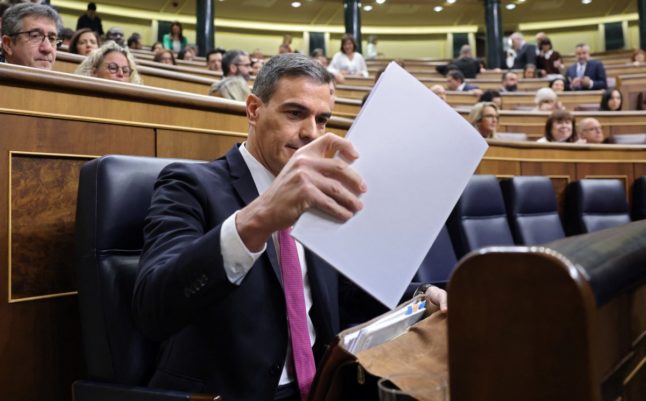Diaz said she would go on a nationwide listening tour to gather ideas about what people want for the country, and then decide whether the movement would take part in the next polls with her at the helm.
“In this citizens’ movement, I am just one more piece. You are the protagonists and if you want I will step up,” she told a crowd of around 5,000 people gathered at a Madrid cultural centre.
Diaz said the new movement called “Sumar”, which means “to add” in Spanish, would seek “a new social contract” and work to end to the politics of “confrontation”.
Politics should be about “extending a hand, and then being able to reach agreements that change people’s lives,” she added.
Diaz currently represents the far-left Podemos party, the junior partner in Socialist Prime Minister Pedro Sanchez’s minority coalition government.
Polls consistently indicate she is Spain’s most popular politician.
As labour minister, she was responsible for a recent labour reform which is credited with a sharp fall in the number of temporary job contracts.
She also oversaw a generous job furlough scheme at the height of the Covid-19 pandemic, which ensured people had an income even when large parts of the economy were closed due to lockdowns.
The launch of the new political movement comes as both the Socialists and Podemos have slumped in the polls, with Spain battered by high inflation as is the case across Europe.
The main opposition conservative Popular Party (PP) have overtaken the Socialists as Spain’s most popular party, according to a poll published Monday in daily newspaper El Pais.
The PP, which in April picked a moderate new leader, had 27.4 percent support, ahead of the Socialist at 26.3 percent.
Podemos was in fourth place, behind far-right party Vox.
The PP last month secured a landslide win in a regional election in Andalusia, winning an absolute majority of seats in the former Socialist stronghold.
It will now govern the southern region, Spain’s most populous, on its own for the first time.
READ ALSO: Who is the communist shaking up Spanish politics?



 Please whitelist us to continue reading.
Please whitelist us to continue reading.
Member comments